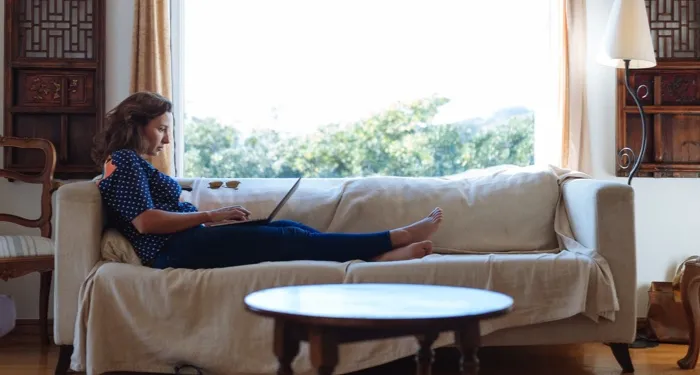
On Being Ill: Reading Chronically Ill Authors
When I talk to non-disabled people about my chronic illness, they always ask things like, “When were you diagnosed?” But chronic illness isn’t linear. For many people, there’s remissions, updated diagnosis, or new conditions that arrive to join the party. Sometimes your doctors have to untangle two or more conditions that have shown up at the same time. It’s never that straightforward. So when it comes to seeing myself in books, I’ve always struggled to find characters or stories that fit just right.
In grad school, I fell in love with Virginia Woolf’s essay “On Being Ill” where she confronts non-disabled people’s aversion to engaging with ill people. Woolf states that “Illness is a part of every human being’s experience. It enhances our perceptions and reduces self-consciousness. It is the great confessional; things are said, truths are blurted out which health conceals.” But little is known about Woolf’s condition, so my connection to Woolf felt at arm’s length at times, generalized and somewhat vague.
Once I left grad school and entered the online bookish world, I discovered a slew of more contemporary writers who have helped me wrap my brain around the kind of life I have. As I was stuck on the couch for days at a time, I’d scroll through book lists, searching for people who had illnesses like mine. I remember finding the piece “The Unbreakable Laura Hillenbrand” in New York Times Magazine, which tells the story of Hillenbrand’s experience with myalgic encephalomyelitis (chronic fatigue syndrome) and how she conducts research for her incredible books from the bed or couch.
As I found myself frequently stuck on my couch, I often felt discouraged. I had so many things I wanted to accomplish, but I wondered if I could still do the things I loved. When I first read Care Work: Dreaming Disability Justice by Leah Lakshmi Piepzna-Samarasinha, I cried over this passage: “Writing from bed is a time-honored disabled way of being an activist and cultural worker. It’s one the mainstream doesn’t often acknowledge but whose lineage stretches from Frida Kahlo painting in bed to Grace Lee Boggs writing in her wheelchair at ninety-eight.” It was as if someone had finally taken my hand and said, “Yes, you can still do incredible things from your sick bed.”
In my late 20s, we figured out I have a connective tissue disorder, locking into place so many variables that had plagued my doctors and caregivers since I was kid. I saw folks with Ehlers-Danlos Syndrome in Disability Visibility edited by Alice Wong and Growing Up Disabled in Australia edited by Carly Findlay. These brief windows into the authors’ lives help me feel less alone as I popped dislocated joints into place and shopped for new finger braces online.
Recently, I read The Invisible Kingdom by Meghan O’Rourke where she describes the ups and downs of her health as her doctors figure out what conditions she has and how to better help her manage them. Later in life, she’s diagnosed with Ehlers-Danlos Syndrome, which explains her life-long struggle with unstable joints. As I read more about her story, I felt equal parts seen and frustrated that people like us having to fight SO HARD to receive proper health care.
As women and femmes, we are more likely to be disbelieved by our healthcare professionals. We have to see a ridiculous number of specialists before we begin to see results. For most of us, it’s an incredibly lonely experience, making us feel like we are watching life go by rather than being part of it.
Awareness months in May — like Ehlers-Danlos Awareness Month, Lupus Awareness Month, and Mental Health Awareness Month — help chronically ill folks find community. We can see that we’re not the only ones stuck on the couch all of the time. And when these awareness months draw to a close, there’s books to remind us we’re not alone.









